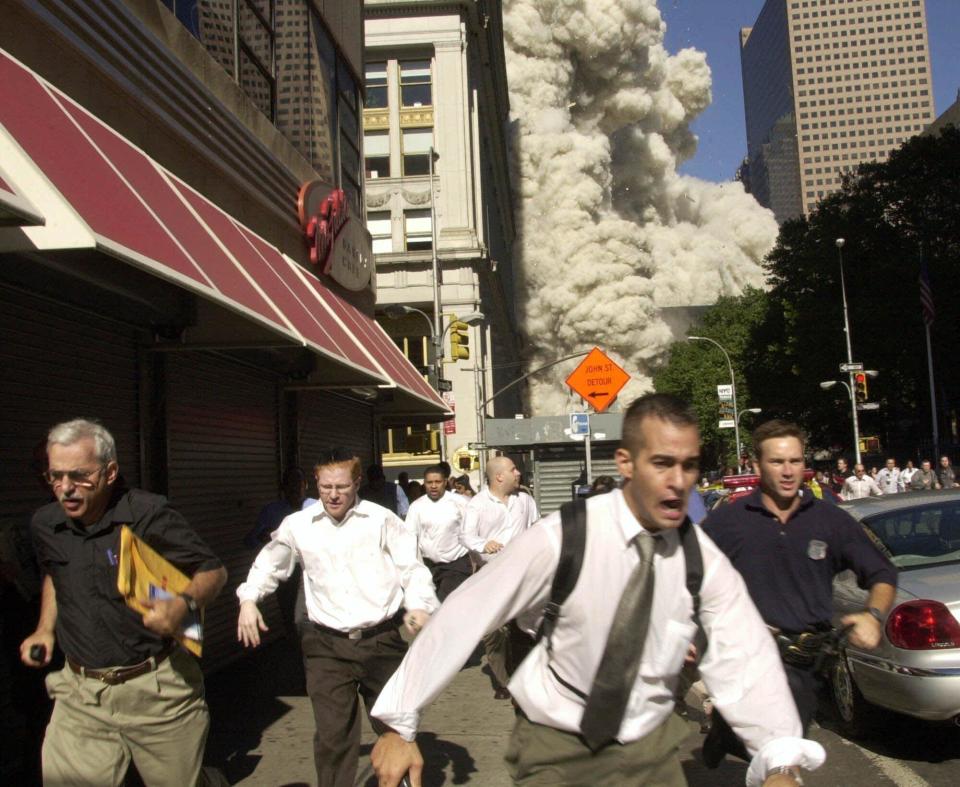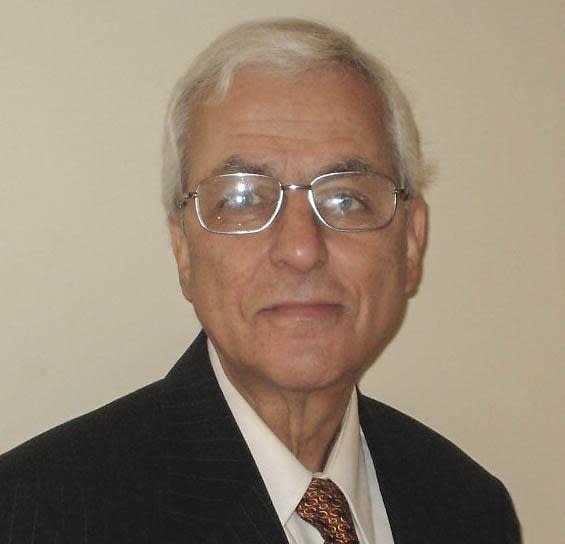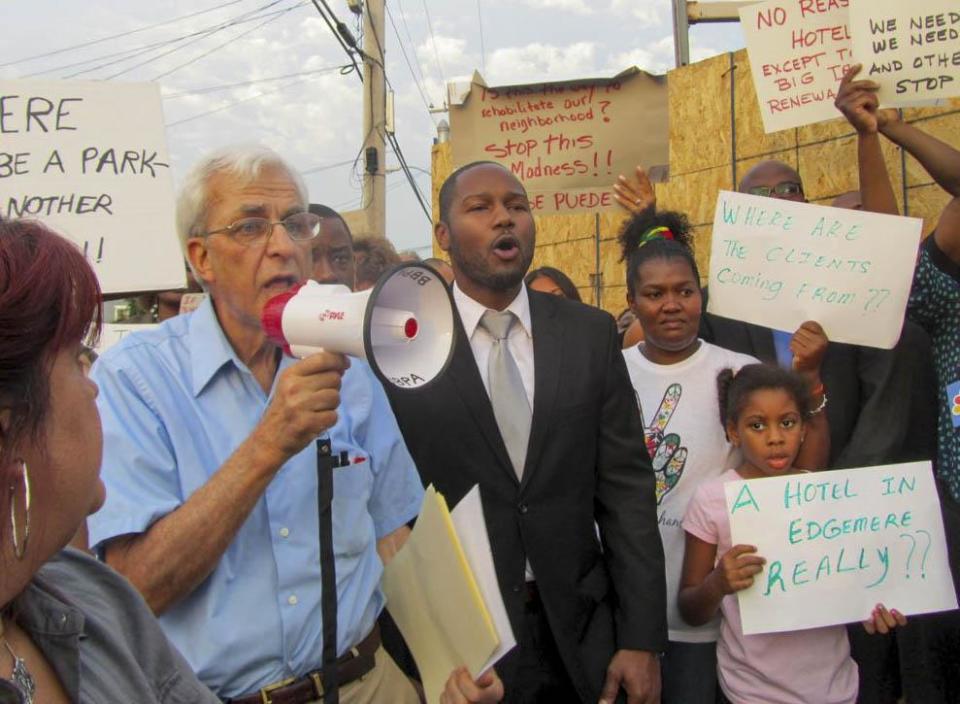Man in famous 9/11 photo dies from COVID-19 in Florida: 'He was a fighter'
DELRAY BEACH, Fla. – You probably never met Stephen Cooper, but chances are you’ve seen him before.
On Sept. 11, 2001, Cooper was photographed fleeing smoke and debris as the south tower of the World Trade Center crumbled just a block away.
The picture by an Associated Press photographer was published in newspapers and magazines all over the world and has been seen by many others at the 9/11 Memorial Museum in New York.
“He didn’t even know the photograph was taken,” said Janet Rashes, Cooper’s partner for 33 years. “All of a sudden, he’s looking in Time magazine one day, and he sees himself and says, ‘Oh my God. That’s me.’ He was amazed. Couldn’t believe it.”
Cooper, an electrical engineer from New York who lived part-time in the Delray Beach area, died March 28 at Delray Medical Center from coronavirus. He was 78.

Rashes said Cooper was on his way to deliver documents near the World Trade Center, unaware of what had taken place that morning, when he heard a police officer yell, “You have to run.”
The photo shows Cooper, 60, with a manila envelope tucked under his left arm, and several other men in a desperate sprint as a massive wall of debris from the collapsing tower races up behind them.
Cooper escaped into a nearby subway station.
“Every year on 9/11, he would go looking for the magazine and say, ’Look, it’s here again,’ ” said Jessica Rashes, 27, Cooper’s daughter. “He would bring it to family barbecues, parties, anywhere he could show it off.”
Susan Gould, a longtime friend, said Cooper was proud of the photo, purchasing multiple copies of Time and handing them out “like a calling card.” She said Cooper shrank a copy of the photo, laminated it and kept it in his wallet.
“Stephen was a character,” Gould said.

Suzanne Plunkett, the AP photographer who snapped the shot, wrote that she’d been in touch with two of the people in the photo, but Cooper was not among them.
“It is a shame I was never aware of the identity of Mr. Cooper,” Plunkett wrote after his death in an email to The Palm Beach Post.
Though Cooper made the wise decision to flee trouble on 9/11, that was not in his nature, Janet Rashes said.
“He was a fighter,” she said.
That spirit was manifested in the politics of Edgemere, New York, a struggling neighborhood in the borough of Queens on the Rockaway peninsula where Cooper owned a home much of his life.
Edgemere is mostly Black and Hispanic, and Cooper was one of its few white residents. Rashes said Cooper battled to keep the area from being “dumped on,” with unwanted projects such as landfills, while he served as president of the Frank Avenue Civic Association, a community group founded in 1926.
“He didn’t get too far very often,” Rashes said. “Sort of a Don Quixote. But the people really liked him because he was there to speak for them.”

Cooper, who worked many years for the New York City Transit Authority, was born in the Bronx and based stateside with the Army during the Vietnam War.
He met Rashes at a Fourth of July barbecue in 1987 at age 46. Although the couple never married, they remained together until his death in March, placing him among the 138 people who died in Palm Beach County in the first month of the pandemic.
In 1993, Cooper and Rashes adopted Jessica from Guatemala.
Rashes said Cooper dealt with health issues after a fall last year, needing brain surgery in October. He spent more than two months hospitalized or in a rehabilitation center after surgery.
Cooper began having more health issues in early March after joining Rashes at their apartment in the Kings Point community west of Delray Beach.
“At that point, the coronavirus was being spoken of, but the people at the hospital weren’t wearing masks,” Rashes said.
Cooper was originally diagnosed with chronic obstructive pulmonary disease.
″(Paramedics) picked him up on March 23,” Rashes said. “That’s the last time I saw him.”
He died five days later.
Follow Jorge Milian on Twitter at @caneswatch.
This article originally appeared on Palm Beach Post: Man captured in iconic 9/11 photo dies of coronavirus in Florida

